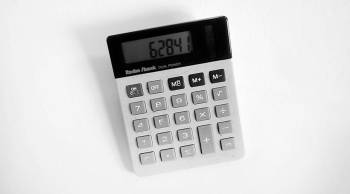Kenneth Feinberg on placing a value on life
In the last 30 years, presidents, governors, mayors and others have delegated to me the unenviable task of putting a value to the lives of people who are already dead.
After the 9/11 terrorist attacks, General Motors ignition switch failures, the Boston Marathon bombings, the Virginia Tech shootings and other tragedies, I had to determine what a life was worth and how much compensation should be paid to individual victims and their families.
These assignments require me to make mathematical calculations tied to the size of the available compensation fund, what the victim most likely would have earned over a lifetime but for the tragedy, and additional amounts for pain and suffering and other extraordinary circumstances.
In taking on these tasks, I have come to realize that, whatever your personal wealth, money is a poor substitute for loss. It neither tempers the grief accompanying traumatic death or physical injury nor fills the void left after tragic loss of life. During my administration of the September 11th Victim Compensation Fund, I recall one mother responding to the $3 million she would receive for the death of her son.
“I have a better idea,” she said. “Keep the money and bring my son back.”
I have also become much more fatalistic, which has influenced my own personal financial planning. In effect, I’ve received on-the-job training for managing my own wealth and protecting it for my wife and family. After the 2001 attacks, I sought the advice of a financial planner, having witnessed firsthand what can happen when people don’t have expert financial advice.
The 9/11 fund offered free financial advice to all claimants receiving compensation. Goldman Sachs, JPMorgan Chase and others stood ready to help, but only 78 of 5,300 eligible claimants took advantage of the opportunity. “We don’t need any expert advice,” was the overwhelming response. One Virginia Tech claimant bought 100 pairs of women’s shoes with her compensation, while another took surviving family members to Disney World.
After meeting with the planner, I updated my will, something I had been putting off. Over half the victims on 9/11 did not have one. Given that they were relatively young and in good health with excellent jobs, they seem not to have thought it was necessary. I suddenly found it necessary. I also selected a law firm specializing in trusts and estates that knows exactly how I want my wealth distributed after my death.
It was also important to me to avoid the problems I occasionally confronted after 9/11, when angry siblings, parents and relatives declared war with one another over the victim’s assets and argued over the 9/11 fund compensation. When millions of dollars are suddenly available for distribution, family members, fiancés and same-sex partners sometimes engage in bitter arguments. So I made sure that my wife and three children had a clear understanding of who gets what by providing each of them a detailed memorandum listing all of my assets and an explanation of how my wealth should be distributed after my death.
I also bought substantial additional life insurance. I bought a mix of term- and whole-life insurance, because I wanted short-term protection in the event of my untimely death and a long-term investment vehicle. I was astounded to learn that over half the victims of the Sept. 11 attacks had no life insurance. Were it not for the 9/11 fund, such a grievous oversight would have placed many victims’ families at financial risk.
When it came to my investments, long-term safety and gradual growth suddenly seemed far more important than any short-term profits and quick gains. I wanted to be assured that the bulk of my wealth would be available for my wife, children and grandchildren.
Finally, in managing my individual portfolio, I have become a firm believer in the “cushion” theory of investment. I have saved more of my annual income than many people would consider to be necessary. Hundreds of 9/11 victims failed to set aside sufficient funds to provide for their families, believing that future earnings would be available to make up for any current shortfall. But the terrorist attacks interrupted such plans. Saving today is a hedge against unknown events tomorrow.
Nobody is immune from life’s misfortunes. It need not be a terrorist attack or the acts of the gunmen at Virginia Tech, Newtown, Connecticut or Aurora, Colorado. We all face uncertainty and risk. All the more reason to pause today and carefully plan for tomorrow.
There’s a lot happening in the world. Through it all, Marketplace is here for you.
You rely on Marketplace to break down the world’s events and tell you how it affects you in a fact-based, approachable way. We rely on your financial support to keep making that possible.
Your donation today powers the independent journalism that you rely on. For just $5/month, you can help sustain Marketplace so we can keep reporting on the things that matter to you.


















